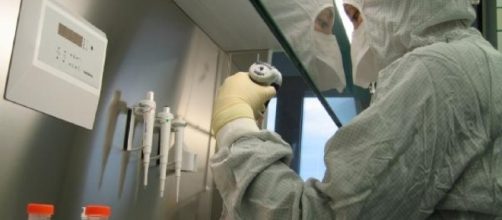Americans have far less sex these days than previous generations, studies reveal. Three teams of researchers at the Florida Atlantic University, the San Diego State University, and the Widener University prove that people are sexually inactive than they were a decade ago, and should have more sex to prevent various diseases, including Prostate Cancer and HIV. The research was drawn from the General Social Survey, using data collected from over 25,000 Americans. The results are published in the journal “Archives of Sexual Behavior.”
Men and women with prostate cancer
Experts believe that men and women who stop having sex in the early years of life may miss out on the prostate-protecting perks of frequent trysts.
Previously, a study presented at the American Urological Association revealed that males and females who enjoy sex thrice a week have a lesser risk of prostate cancer than the individuals who avoid sex. Medical professionals from the Florida Atlantic University believe that regular sex prevents cancer, and frequent ejaculations remove potentially harmful substances from the prostate. Unfortunately, couples have 15 times less sex than in the previous years. Doctors say that we are increasingly less happy, which could be dampening our libido - but more sex makes us happy, preventing diseases like prostate cancer, high blood pressure, and diabetes.
Harmful for human psychology
FAU research shows Americans have prostate cancer, HIV, and other complications because they do not pay attention to having sex.
University psychology professor Ryne Sherman co-authored the study. He says that physical relationships boost our body’s ability to make antibodies against viruses, bacteria, and other microbes that cause illness. There is more to cultivating a robust immune system than having a healthy sex life. Every two out of ten patients with prostate cancer accept the fact that they do not get adequate sex.
Dr. Ryne believes that it strengthens the immunity, and helps to fight against contagious illnesses.
As medical breakthroughs and treatment options have improved, an HIV vaccination may become a reality. But scientists at the University of Oxford claim that unprotected sex is one of the main reasons of HIV. Sherman contends that the sexual frequency of unpartnered individuals remains unchanged albeit relatively low, but the sexual frequency of partnered people drops the most, about ten times less per year.
More Sex boosts immunity and prevents over 20 types of cancer. It prevents pain and vaginal dryness and regulates the blood flow. It increases the elasticity of tissues and is good for women’s bladder control. However, scientists need more time to prove how sex prevents prostate cancer and how it strengthens the health of pelvic muscles. They say that the brain releases endorphins and oxytocin, which are good for various genetic disorders.

